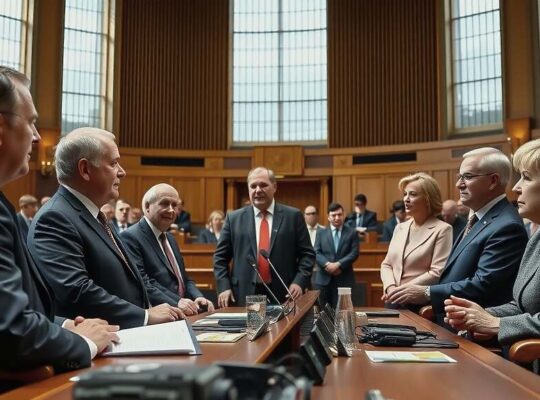Germany’s export-dependent economy is facing renewed headwinds, with a significant downturn in business expectations revealed in the latest Ifo Institute survey. November saw a sharp decline in the Ifo Export Expectations index, plummeting to -3.4 points, a stark contrast to the +2.2 points recorded just the previous month. This represents a worrying continuation of a prolonged period of stagnation within a sector crucial to the nation’s economic health.
“For months, the export economy has shown little movement” stated Klaus Wohlrabe, head of Ifo’s surveys, underscoring the underlying malaise. “The sentiment is, at best, mixed. Signs of a sustainable recovery continue to be absent”. The brief respite experienced in the preceding two months, which had sparked tentative optimism, has now evaporated, particularly within the automotive sector, a traditionally key driver of German exports. Companies are now forecasting a decline in overseas sales.
The downturn isn’t confined to automotive; the food and metal processing industries are also projecting reduced export volumes. While manufacturers of electrical equipment and the leather industry remain cautiously optimistic about growth, the broader picture suggests a fragility within Germany’s international trade position. Notably, the machine building sector, alongside producers of electronic and optical goods, are reporting a standstill – a concerning indicator of broader industrial uncertainty.
Analysts are increasingly questioning the government’s strategies for bolstering export growth in a rapidly changing global landscape, with geopolitical instability and rising protectionist tendencies adding layers of complexity. Critics argue current policies are insufficient to address the underlying structural challenges impacting Germany’s export competitiveness. The prolonged stagnation exposes a potential vulnerability of relying so heavily on a single, exposed sector and raises questions about the robustness of Germany’s economic resilience against future shocks. Further government intervention and a reassessment of trade priorities may be necessary to avert a more prolonged period of economic uncertainty.












